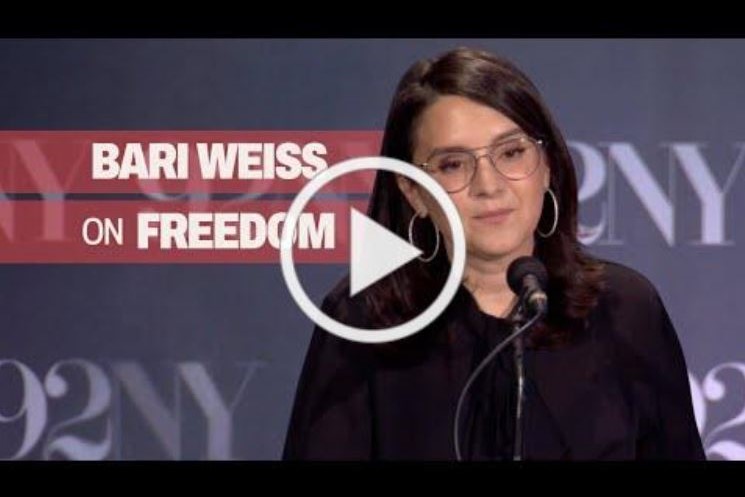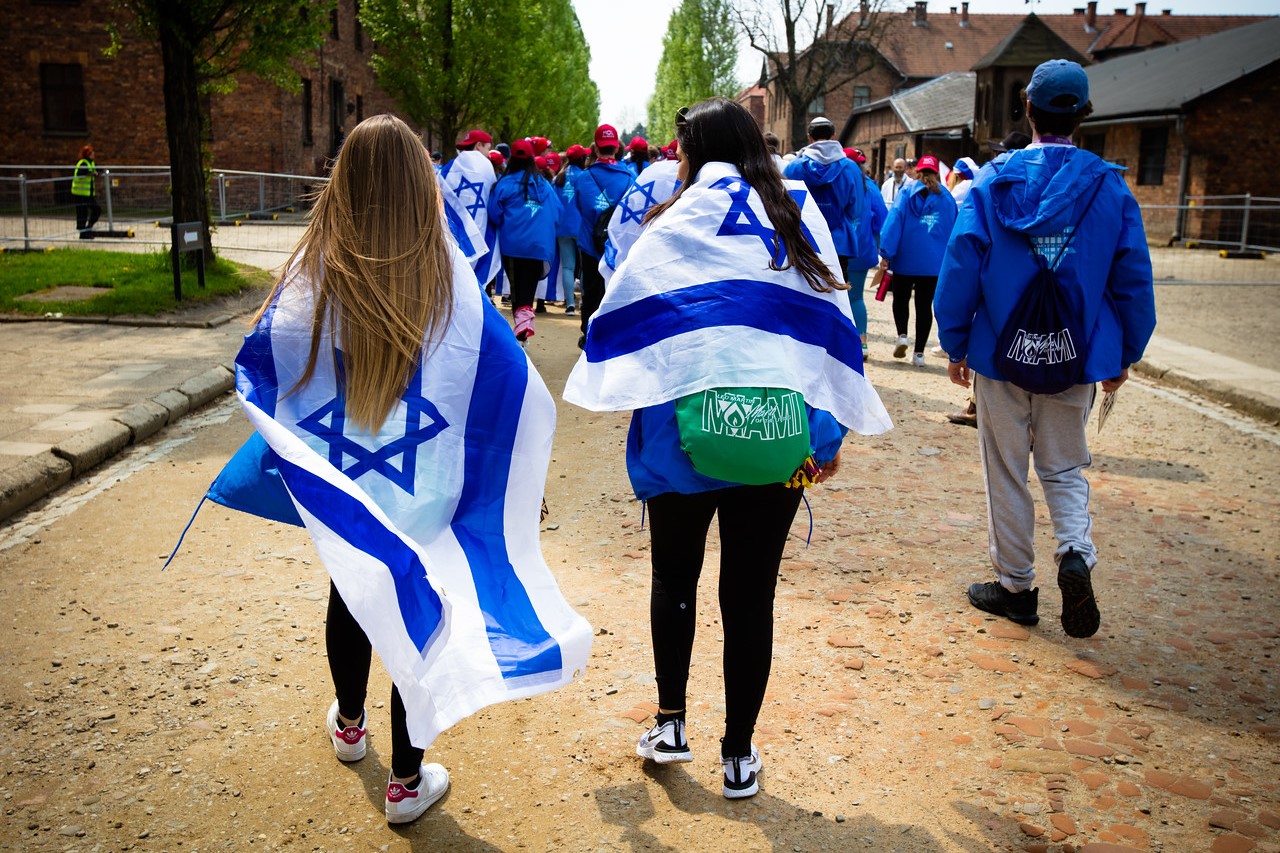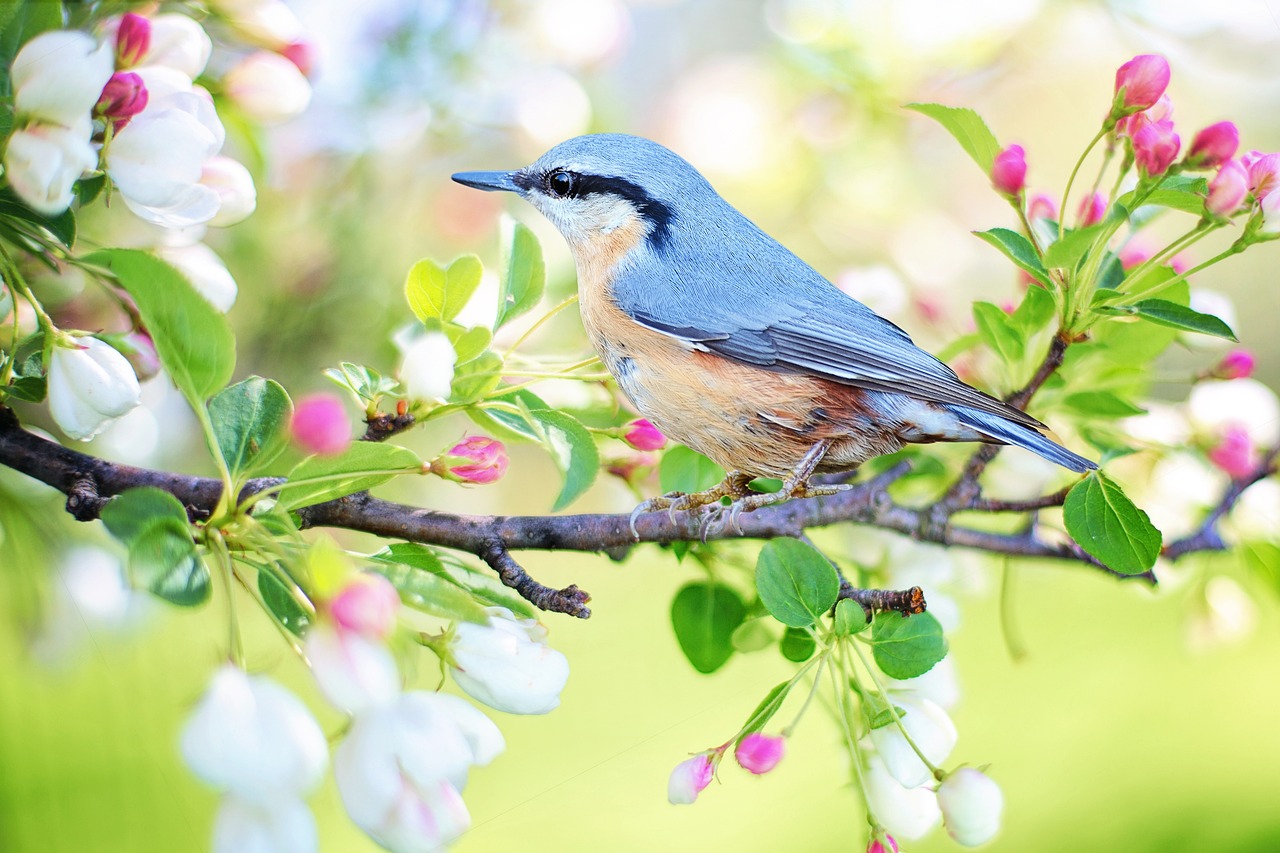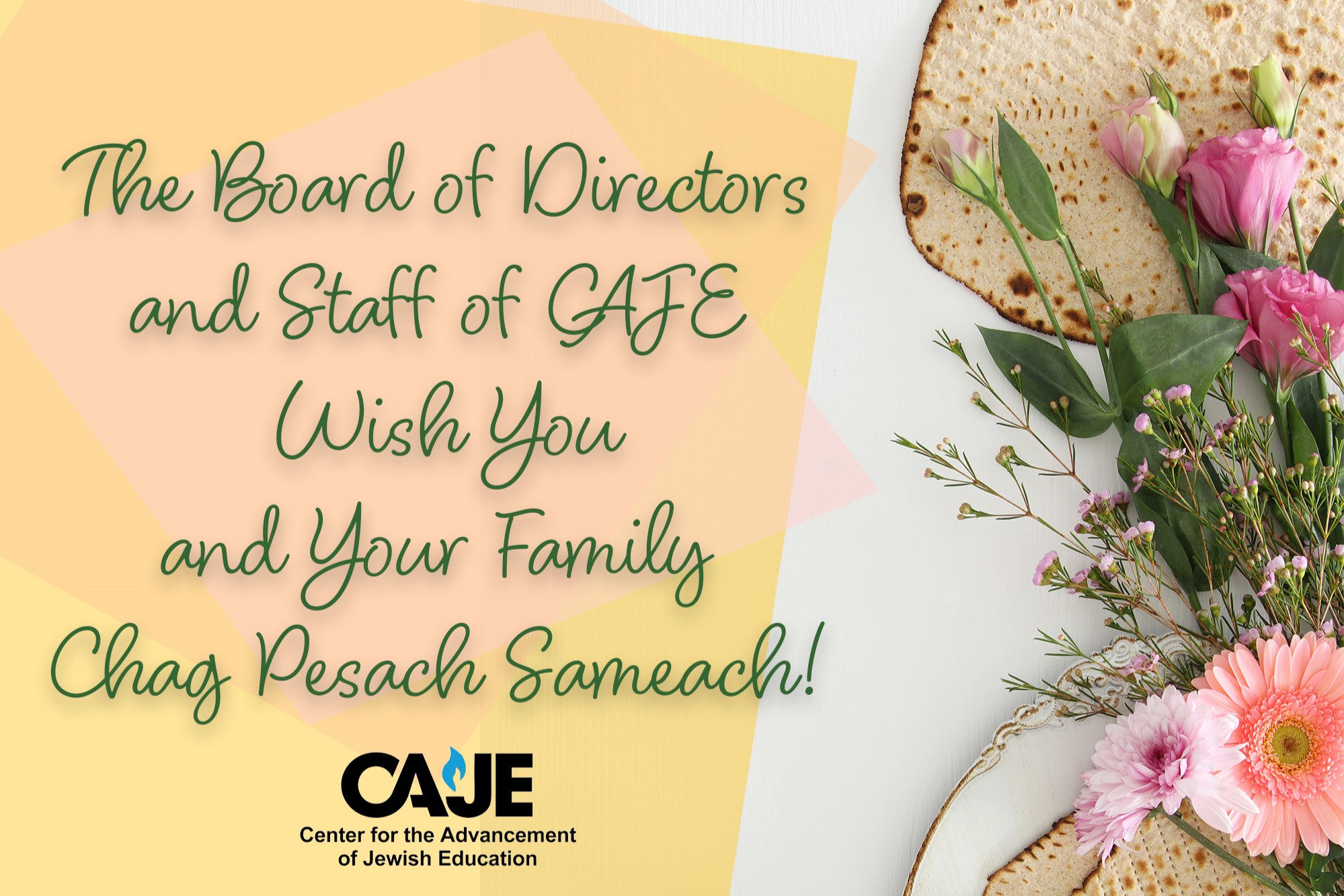What It Means to Choose Freedom

This Dvar Torah was compressed from a lecture on the State of World Jewry given by the journalist Bari Weiss, author of How to Fight Antisemitism, at the 92Y in New York and references this week’s Torah portion Ki Tisa. For the full transcript, please visit The Free Press.
…This talk is called the State of World Jewry Address. But if there is a lesson of these past few years—and especially these past 142 days—it is that the state of world Jewry depends on the state of the free world. And right now its condition is in jeopardy.
This is a truth known viscerally to Jews today who hail from the unfree world— those from the former Soviet Union; those who were expelled from Iran and other autocratic regimes in the Middle East.
And it is a truth faced daily by Jews in places that remain unfree. Just ask the Jews of Tunisia, who in October watched as a historic synagogue was reduced to rubble by a mob driven by false reports that Israel had bombed a hospital in Gaza.
But this is a truth that we American Jews have lost sight of on account of our abundant blessings. As our holiday from history ends, as we learn to live inside history once more, it is a truth we urgently need to revive and renew and make real for ourselves.
So that is what I want to talk about tonight. How we must become— inside and outside— free people. For the sake of America. For the sake of the free world. And for the sake of the Jews— those who came before us, and those yet to come.
The Jewish people are in the wilderness.
That is where we find our ancestors— the Israelites— in the part of the Torah we are in the midst of reading. This coming Shabbat we will hear one of the most iconic and troubling stories in all of the Hebrew Bible.
You know the one.
“When the people saw that Moses was so long in coming down from the mountain, they gathered against Aaron and said to him, ‘Come, make us a god who shall go before us, for that fellow Moses—the man who brought us from the land of Egypt—we do not know what has happened to him.’ ” [Shmot/Exodus 32:1]
They immediately get to work.
Aaron tells the Israelites to take off their gold—the rings on the ears of their wives and daughters. They melt down their jewelry and they make for themselves a golden calf. They make offerings to it. They dance before it. And they cry out before the idol they have made: “This is your god, O Israel, who brought you out of the land of Egypt.”
Linger on that: they looked at a statue, which they knew they had just made with their own hands, and gave it credit for an otherworldly miracle. And not one that happened to others, but one they experienced firsthand. At the very least, they had to know the cow wasn’t there.
So, the question is why.
Why did they do it? Why did a people who had just experienced the miracle of their liberation from slavery turn away from the God who had given them their freedom… and toward an idol?
The rabbis provide many answers. So does the Israeli singer Ehud Banai. These are the lyrics he sings:
We are here, in the heart of the desert,
Thirsty for living water
You’re on top of the mountain
Above the clouds
There is no sign
No signal
So many days
In a closed circuit we circle
Around the Golden Calf.
There’s no one to hit the rock
Who will give direction?
So why did they do it?
They did it because they felt anxious and vulnerable and alone.
They did it because they were desperate.
They did it because they wanted temporary pleasure.
They did it because they lost—or thought they lost—their connection to God.
They did it because they did not have the imagination to conceive of a different future.
They did it because they had come from a place that worshipped idols. They imitated what they had grown up with.
They reverted to what they knew. They imitated the dominant culture even though that culture had enslaved them.
And was that so crazy?
Not a moment ago these freed people had been slaves.
They may have dreamed, during the long night of slavery, of being “a free people in our own land,” as the words of Hatikvah would put it 4,000 or so years later.
But that wasn’t the same as waking up inside a totally new paradigm.
That wasn’t the same as being asked to leave behind everything about the world they knew to become a free people with all of the immense privileges, but also the terrifying responsibilities, that freedom comes with.
So: Why did they build the calf? Because freedom is so very, very hard...
There it all is in a few spare lines written down thousands of years ago. But it is now. And it is us.
We modern Israelites have also been worshipping false gods.
Our American idols are prestige, power, social acceptance, popularity, elite opinion, and the Ivy League—but I repeat myself.
Our idols are the coveted board seat. The best tables. Relationships with the pretty people.
We put truth on the altar, as if it were a tithable commodity, to remain insiders, to have bragging rights.
We have been willing to sacrifice what is most precious to us—including our own children—for the sake of it.
Why are we doing this?
We are doing it because we are a tiny minority, and because we feel vulnerable and scared and alone. And because fitting in feels safer than standing apart.
We are doing it because we are human beings and so seek temporary pleasure and ease.
We are doing it because we feel anxious and unsure.
We are doing it because we tell ourselves that accommodation is the best route to safety.
We are doing it because we also live in a culture of idolatry, only this time the materials are pixels and diplomas, adherence to a particular ideology and an emergent social credit system based on likes and retweets.
We are doing it because maybe deep down we don’t believe we are capable of more.
We are doing it because freedom —real, true freedom— is so very hard….
So let me not leave this stage tonight before saying this again and underscoring it: we are at a hinge moment in history.
Our world is changing.
The world many of us were born into —the world we thought we would spend our lives inside— that world is over. There is no going back.
And the things we took for granted—that America would remain exceptional (not just for us but in the world); that Americans would understand this as a place and an idea worth fighting for—those are no longer certainties.
Nor is the certainty of the free world itself, which is burning at its outer edges.
All of it —the ideals and the architecture that have made the past 75 years of Jewish life the greatest in the history of the world— are up for grabs.
Ask the people of southern Israel who saw, on the morning of October 7, how brittle the fence is that separates civilization from barbarism….
To say that this turn against liberty — the foundational value of this country, our new Jerusalem— is bad for Jews is as self-evident as it once was to declare that Lincoln was a hero or that Frederick Douglass was a second Founding Father or that America is the last best hope on Earth.
Where liberty thrives, Jews thrive. Where difference is celebrated, Jews are celebrated.
Where freedom of thought and faith and speech are protected, Jews are safest. And when such virtues are regarded as threats, Jews will be regarded as the same.
In other words: when people turn against freedom, they turn against us....
So what do we do?
The charge is as simple as it is spiritually difficult. We fulfill our duty and our responsibility to be free.
As my friend, the brilliant Dara Horn, has written:
“Since ancient times, in every place they have ever lived, Jews have represented the frightening prospect of freedom. As long as Jews existed in any society, there was evidence that it in fact wasn’t necessary to believe what everyone else believed, that those who disagreed with their neighbors could survive and even flourish against all odds.
The Jews’ continued distinctiveness, despite overwhelming pressure to become like everyone else, demonstrated their enormous effort to cultivate that freedom: devotion to law and story, deep literacy, and an absolute obsessiveness about transmitting those values between generations.
The existence of Jews in any society is a reminder that freedom is possible, but only with responsibility—and that freedom without responsibility is no freedom at all.”
But that freedom, that responsibility, is a choice for us— as it has always been, including for those Israelites addicted to the fleshpots of Egypt who choose not to leave slavery.
What does this choice look like? What does it look like to be free? To practice freedom?
To be free is to tell the truth even in a world awash with lies….
To be free is to stand up for other people’s freedom, but—and this is crucial—not when it means ending your own…
To be free is to be willing to stand apart…
To be free is to stand up—and fight—for the freest country in the history of the world…
To be free is to be courageous even when we are scared….
I do not know what will come next for America or for the Jewish people any more than the Israelites who left Egypt and stood beneath the fire at Sinai.
Things are uncertain.
What I know is that our tradition teaches us that the seal of God is truth.
What I know is that the story of the Jewish people is the story of freedom.
And what I know is that story rings out across space and time in a common struggle against tyranny.
Navalny knew that when he quoted the last line of the Passover Seder: “Here, I copied you it for myself from the book: L’Shana Haba’ah B’Yerushalayim.”
A shared promise of freedom passed between a Christian prisoner of conscience, soon to be murdered by Putin in his Arctic cell, and a former Soviet prisoner, free as a Jew in Jerusalem…
And that’s what I want to end on. Fighting the lies against us, fighting the lies against history, living in truth— it feels good.
It’s relaxing to tell the truth. You’ll laugh more. Not that I’m here selling a new cure for depression, but I promise this is a start.
What a blessing to be free to choose. I know what my choice will be. I am determined to be free.
Shabbat Shalom





